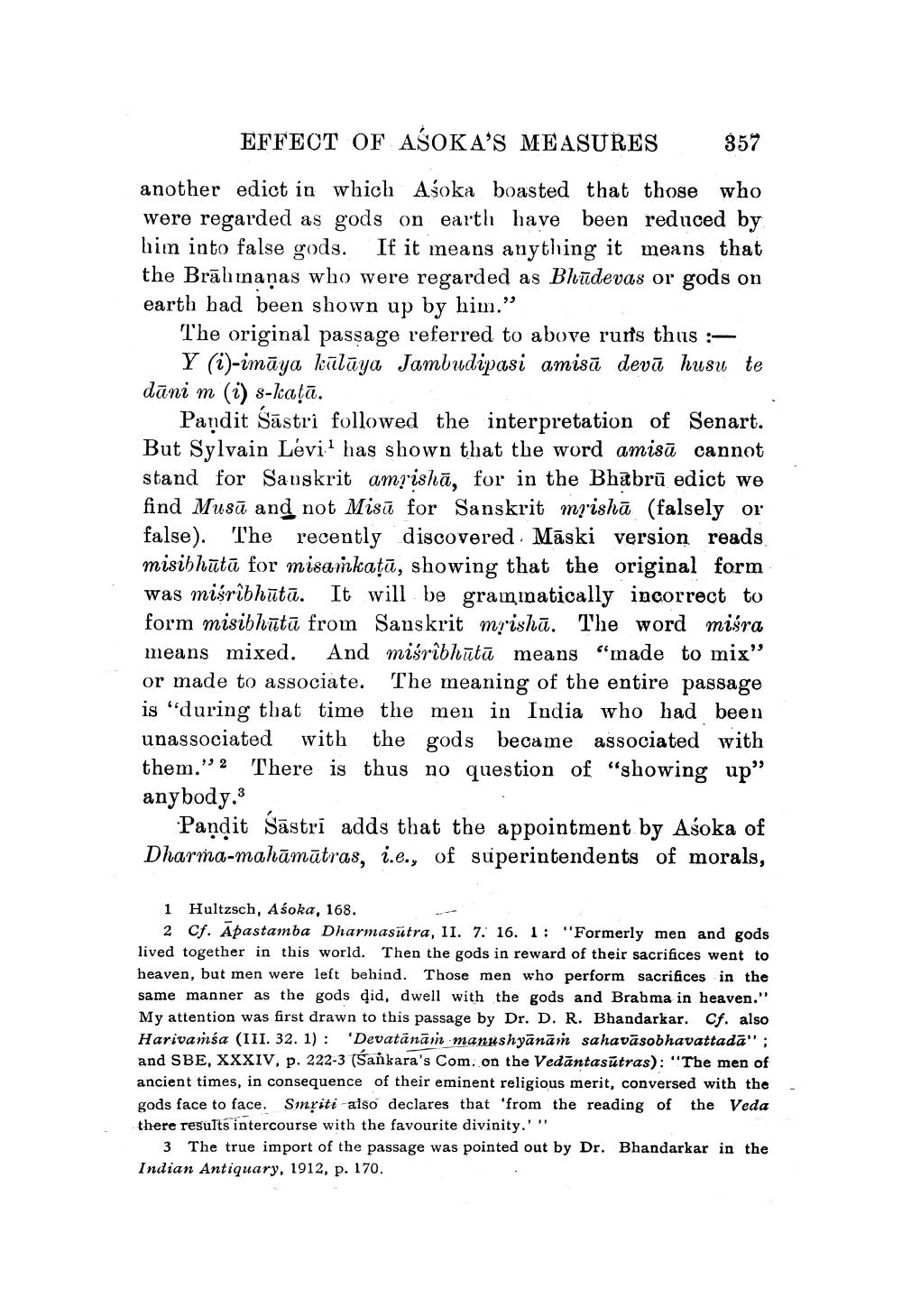________________
EFFECT OF ASOKA'S MEASURES
357
another edict in which Aśoka boasted that those who were regarded as gods on earth have been reduced by him into false gods. If it means anything it means that the Brahmanas who were regarded as Bhudevas or gods on earth had been shown up by him."
The original passage referred to above runs thus:
Y (i)-imaya kalaya Jambudipasi amisā devā husu te dani m (i) s-kaṭā.
Pandit Sastri followed the interpretation of Senart. But Sylvain Levi1 has shown that the word amisă cannot stand for Sanskrit amrisha, for in the Bhabrū edict we find Musa and not Misa for Sanskrit mrisha (falsely or false). The recently discovered Maski version reads. misibhuta for misamkata, showing that the original form was misribhūtā. It will be grammatically incorrect to form misibhuta from Sanskrit mrisha. The word misra means mixed. And misribhūtā means "made to mix" or made to associate. The meaning of the entire passage is "during that time the men in India who had been unassociated with the gods became associated with them." 152 There is thus no question of "showing up" anybody.3
Pandit Sastri adds that the appointment by Aśoka of Dharma-mahāmātras, i.e., of superintendents of morals,
1 Hultzsch, Aśoka, 168.
2 Cf. Apastamba Dharmasutra, 11. 7. 16. 1: "Formerly men and gods lived together in this world. Then the gods in reward of their sacrifices went to heaven, but men were left behind. Those men who perform sacrifices in the same manner as the gods did, dwell with the gods and Brahma in heaven." My attention was first drawn to this passage by Dr. D. R. Bhandarkar. Cf. also. Harivamsa (III. 32. 1): 'Devatānām manushyānāṁ sahavāsobhavattada"; and SBE, XXXIV, p. 222-3 (Sankara's Com. on the Vedantasūtras): "The men of ancient times, in consequence of their eminent religious merit, conversed with the gods face to face. Smriti also declares that 'from the reading of the Veda there results intercourse with the favourite divinity.'"'
3 The true import of the passage was pointed out by Dr. Bhandarkar in the Indian Antiquary, 1912, p. 170.




